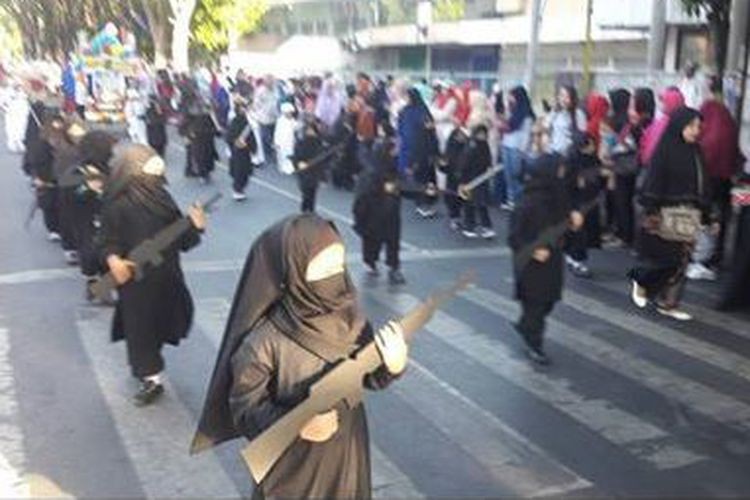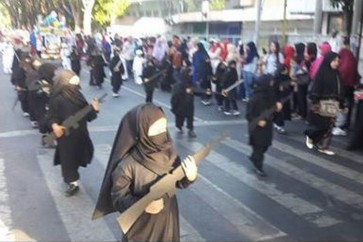Popular Reads
Top Results
Can't find what you're looking for?
View all search resultsPopular Reads
Top Results
Can't find what you're looking for?
View all search resultsKindergarten contest behind promotion of intolerance
Although preschool education has not always aimed to instill religious discipline, this research finds a strong tendency that preschool institutions are being relied on as a place to instill religious teachings or worship and also as a means to exercise moral control.
Change text size
Gift Premium Articles
to Anyone
I
n addition to the severe New Year floods, we were also shocked by a viral video of girl and boy scouts. Their yells included: “Islam-Islam yes, kafir-kafir no”. For Jakartans, the scene from Yogyakarta harked back to the 2017 gubernatorial election, in which incumbent and candidate Basuki “Ahok” Tjahaja Purnama was denounced as a kafir (infidel).
Yet such expressions and teaching of intolerance have entered the core of disciplinary education starting at preschool level. This article departs from research on religious disciplinary education at the level of early childhood education (PAUD), which includes kindergarten (TK), PAUD equivalent units (SPS), Raudhatul Athfal (Islamic kindergarten under the Religious Affairs Ministry), and Islamic integrated kindergarten, conducted on and off from 2013 to 2019. This study shows how the imposition of religious discipline leads to education that promotes intolerance.
Although preschool education has not always aimed to instill religious discipline, this research finds a strong tendency that preschool institutions are being relied on as a place to instill religious teachings or worship and also as a means to exercise moral control. The scope of religious discipline and moral control in these preschool institutions is very broad, from introducing basic skills, such as reciting short daily prayers before eating or sleeping, memorizing short Quranic verses, to other basic teachings on Muslims’ obligations including emphasis on the values of monotheism (tauhid).
In the teaching of tauhid we found content with teachings and expressions of intolerance, exclusiveness and even hints of violence against groups with other beliefs or kafir.
Discipline is instilled through routine learning and motoric activities in movement, songs or the introduction of vocabulary. For example, the song “Aku Anak Soleh” (I am a pious child) contains the phrase “Cinta Islam sampai mati” (Love Islam until death), accompanied by crossing one’s arm at the neck — imitating a knife or a sword cutting one’s throat.
Compared with studies on the encroachment of radicalism in junior and high schools and universities, little attention has been paid to teaching with intolerant or violent content in preschool educational institutions. Generally it is assumed that radicalization is a process of instilling an ideology, which requires a process of thinking and awareness raising, while preschool instills discipline through habit formation.
Michel Foucault, in his famous book Discipline and Punishment, observed that discipline is closely associated with power which controls its objects through an all-seeing telescope, the “panopticon”, and by normalizing moral evaluations. In preschool education, religious discipline and moral control are not done through military-style hierarchical observation as per Foucault’s theory, but rather through a collective will to strengthen the “fortress of faith” in children starting at an early age.


















